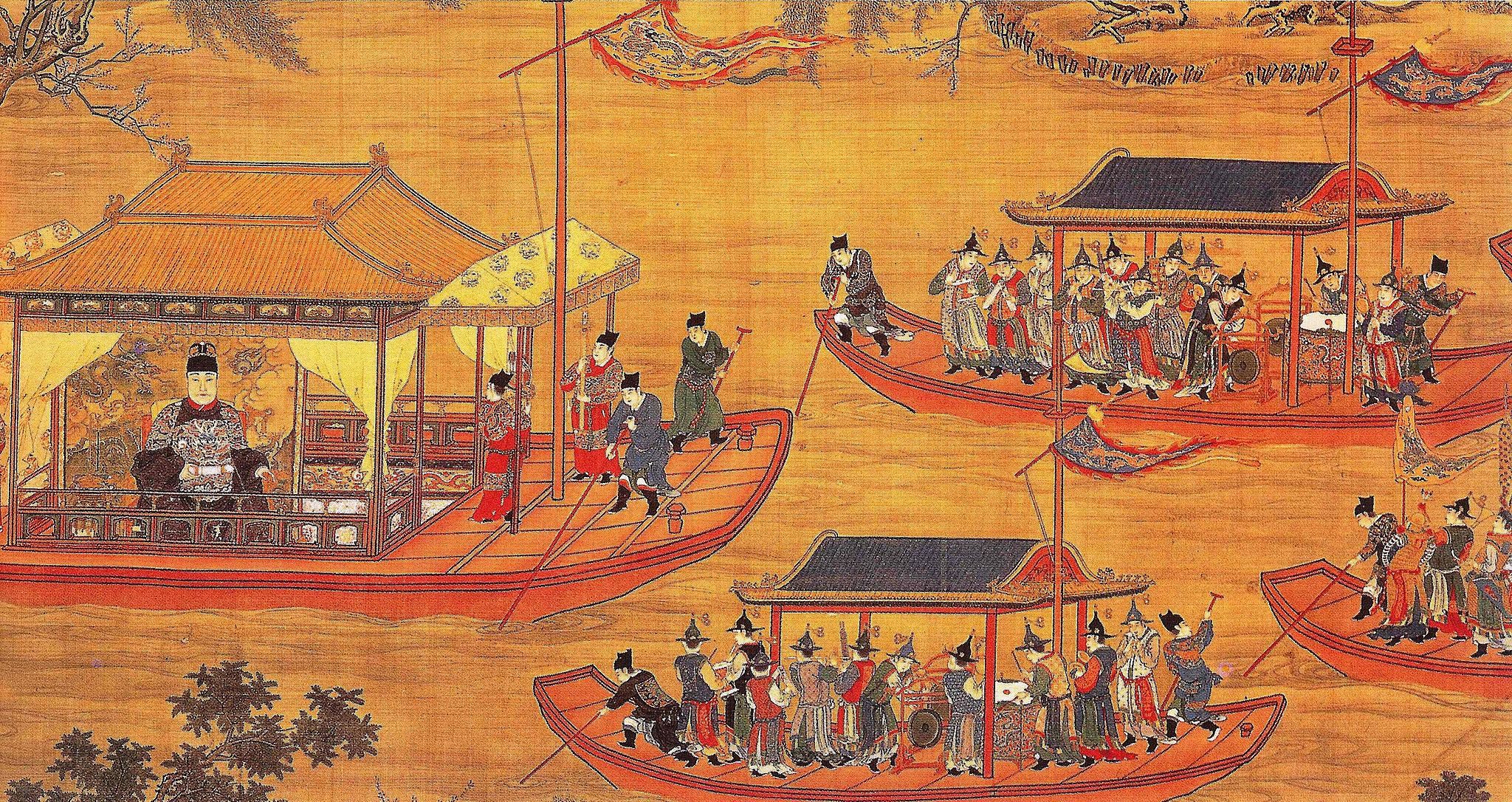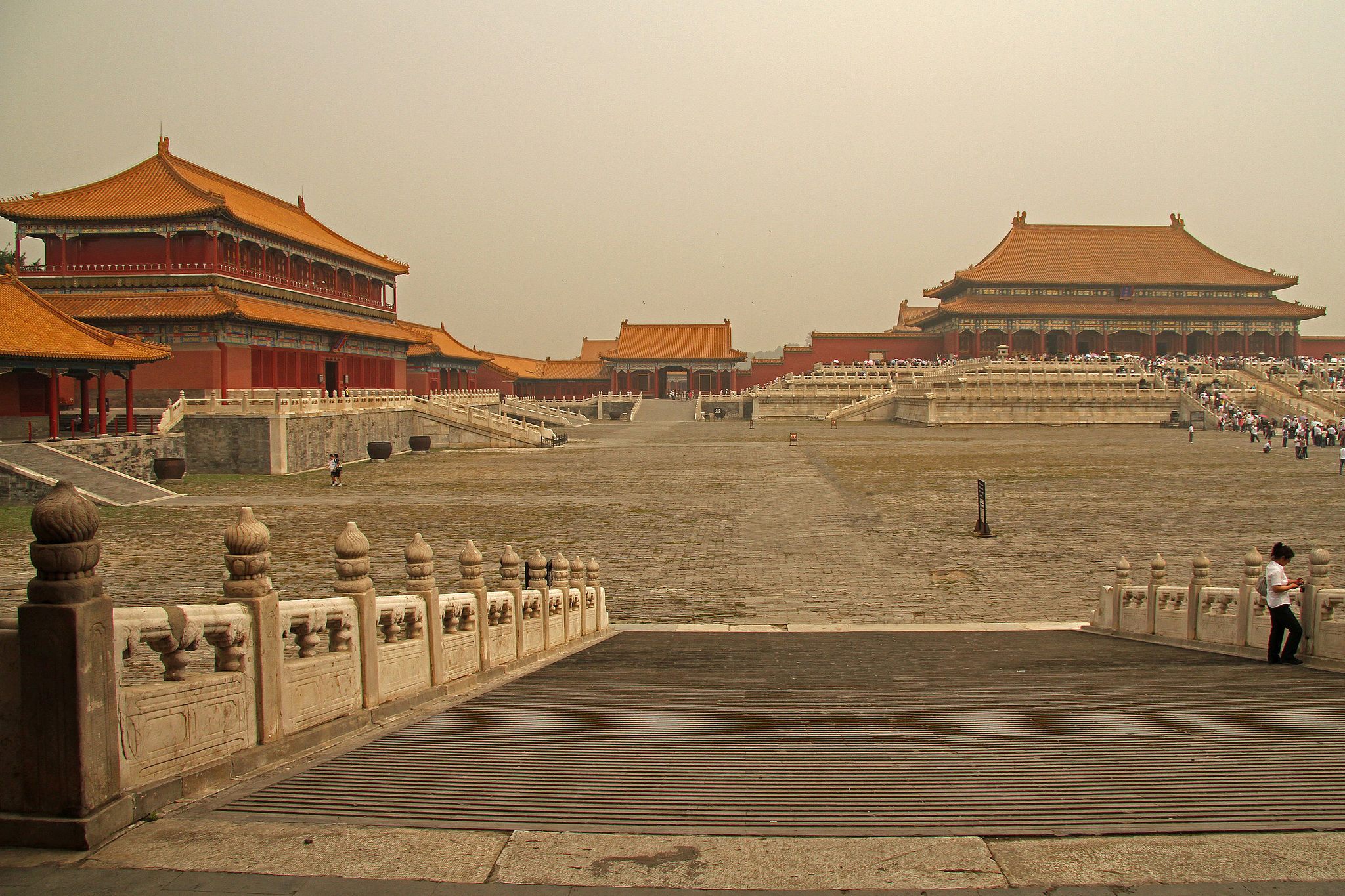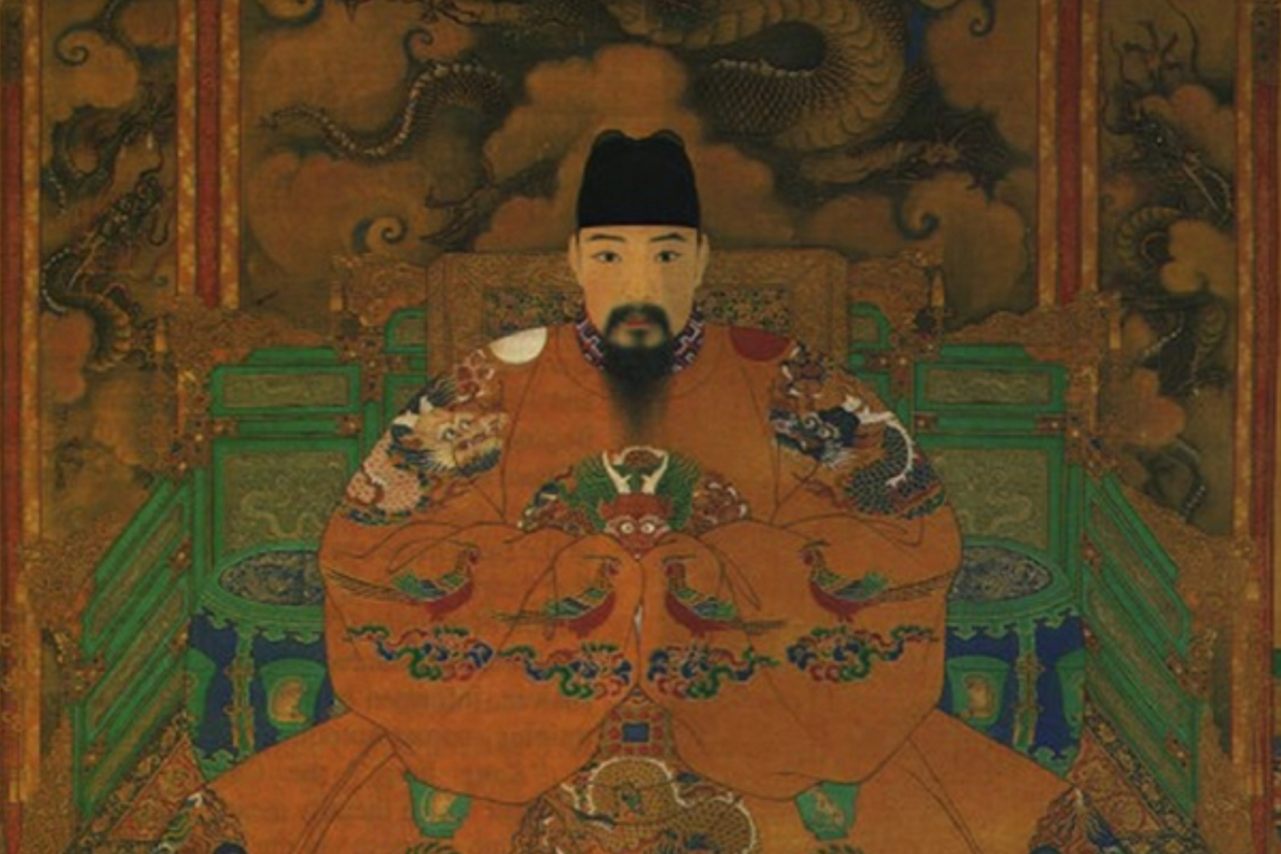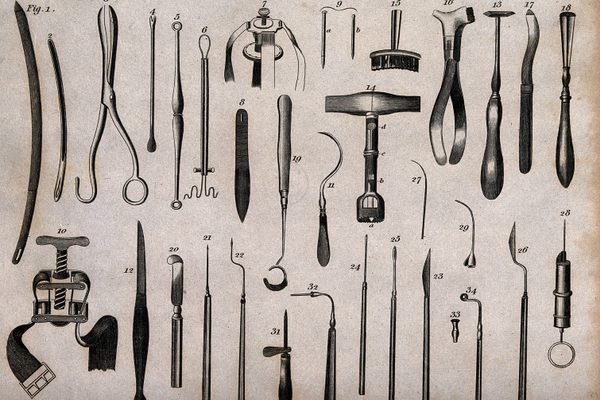This Chinese Emperor Swore Off Consorts—Possibly Because One Murdered His Mom
Sometimes being monogamous is the best thing for an empire.
Is it conceivable that the supreme ruler of an empire would have chosen to be monogamous? It seems hard to believe, but at least one such emperor exists in history. His name was Emperor Hongzhi, and palace trauma seems to have left him with the impression that maybe sticking to a single woman was his safest bet.
Throughout history, Chinese emperors were widely known to have multiple wives–in order to guarantee an heir–and hundreds of other sexual partners at their behest and within their palaces. But the Hongzhi Emperor, who reigned between 1487 and 1505 during China’s Ming Dynasty, seems to have voluntarily, even deliberately, opted for an exclusive relationship.
Kenneth Swope, of the University of Southern Mississippi, says that Hongzhi’s monogamy was linked to the close relationship he had with his mother. But while the filial relationship was a factor, there was, in fact, far more to it than that.
In a turbulent era where political affairs were characterized by jealousy and power-mongering, the Ming Dynasty was, at times, the ultimate soap opera. The storied Chinese dynasty, which lasted 276 years, is remembered today for its orderly government and Confucian values. Yet it was also rife with murder and infidelity.

In late imperial China, once a man had achieved some stature he was expected to take a mistress–or more than one. According to Ming law, if a man reached the age of 40 without having a son, he could take a secondary wife, selected by his first wife. (Concubines or consorts were both considered secondary wives, not to be confused with courtesans, who were highly cultured prostitutes.)
Emperors had access to upwards of 10,000 consorts, says Swope. In terms of how many they actually had relations with, the average was around a few dozen, with five or six women in the emperor’s favor at any given time, he estimates.
But not Hongzhi. Hongzhi, born Zhu Youcheng, had no children outside of his one marriage to the empress, and according to the conventional wisdom, had no extramarital relations, either. “It certainly is unusual—something that people tend to comment on,” says Sarah Schneewind, a Ming Dynasty scholar at UC San Diego.
But how Hongzhi survived the palace intrigues of his childhood may shed some light on his history.

Hongzhi’s father was the Chenghua Emperor, ruling from 1464 to 1487. Upon the death of the empress, Chenghua’s favorite consort, Lady Wan, plotted her path to domination. Fueled by acute jealousy and a hunger for power, Lady Wan murdered as many of the emperor’s babies as she could find, often killing their mothers as well. Chenghua was so debauched it seems he couldn’t keep track of his own children, and there was one baby that both he and Lady Wan missed—that was Hongzhi.
Hongzhi’s mother, another consort named Lady Ji, had put her baby in the trust of a eunuch, who, with the help of Chenghua’s empress, managed to keep him safe for five years. The emperor, thanks to Lady Wan, was still childless at that point, and disappointed about that. Imagine his great relief when one of his court eunuchs informed him that he did indeed have a son. Once Chenghua named Hongzhi his heir, even the vicious Lady Wan couldn’t get away with his murder. Nonetheless, she managed to kill Hongzhi’s mother as a consolation prize.
“So in other words, as Hongzhi was growing up, his experience of polygamy was that it was murderous—incredibly dangerous for everyone involved,” says Schneewind. “He wanted his babies to live and his wife to live, and he didn’t want to be worrying about whether they were going to kill each other. So, he figured, let’s just stick to one woman.”

His father, Emperor Chenghua, was hardly a better influence. In fact, he was a real Ming Dynasty Hugh Hefner; he pored through sex manuals and was obsessed with pornography, cavorted with Taoist magicians, and was led astray by money-grubbing pals. As a result, government affairs ended up mostly in the hands of Lady Wan, who thoroughly abused her power. Isolated in the palace away from society, imperial politics often grew nepotistic and petty, with consorts and eunuchs wielding disproportionate influence.
So when Hongzhi took the throne, he was eager to clean up the rampant corruption and promote Confucian morality. Leading an upstanding life and setting a good example, says Schneewind, was an important part of his anti-corruption, anti-decadence campaign. It may also have made him into what Swope describes as the “most uninteresting and colorless of all the Ming emperors.”
There is another factor that is often overlooked: within Confucianism, fidelity is valued. Chinese men of the time were praised for refusing to abandon previous fiancées, even if they had surpassed the woman in status or she had become disabled. Schneewind says that these values, which were well known by Hongzhi, must surely have been on his mind. Plus in both Taoism and the medical advice of the time too much sex was believed to deplete a male’s energy, or ch’i.

And practically speaking, if the purpose of consorts was to provide offspring, then Hongzhi didn’t need any. He was endowed with two sons and three daughters by his single empress. He died in 1505 at age 35, blissfully ignorant of how his son, the Zhengde Emperor, would soon surround himself with women, die childless, and leave the government in shambles.
This story originally ran in 2016; it has been updated for 2022.


















Follow us on Twitter to get the latest on the world's hidden wonders.
Like us on Facebook to get the latest on the world's hidden wonders.
Follow us on Twitter Like us on Facebook